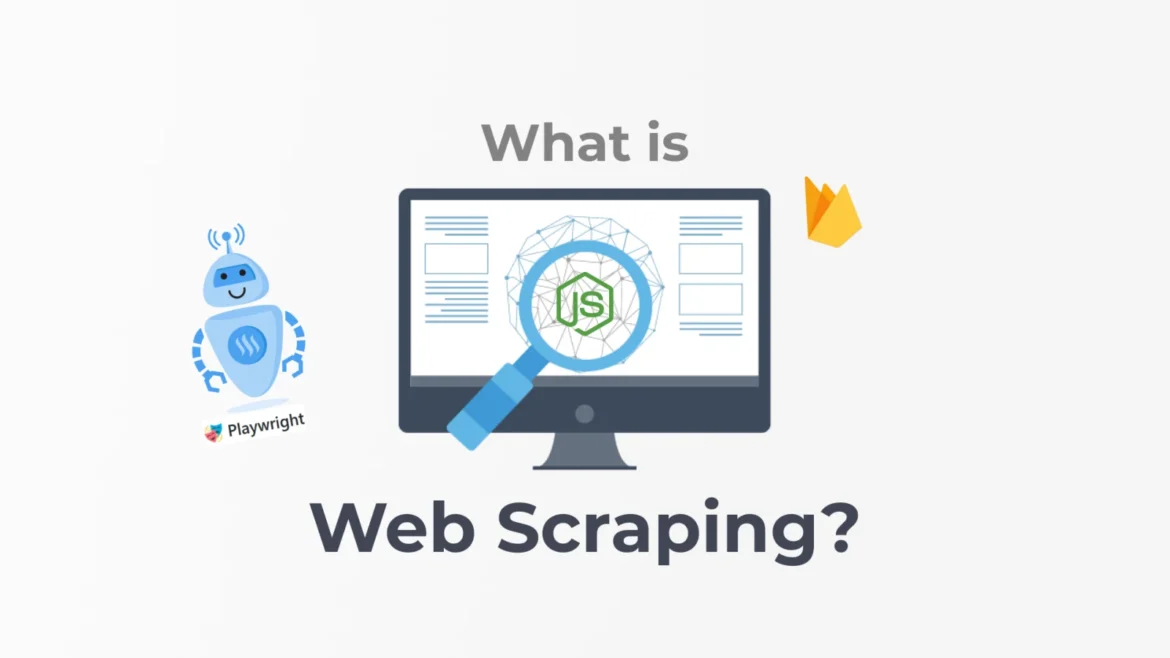Web scraping has revolutionized the way we access and utilize data from the internet. However, as data becomes more valuable and personal privacy concerns grow, it is crucial to approach web scraping techniques and respect the boundaries set by website owners and data protection regulations. In this article, we will delve into the concept of ethical web scraping, exploring the principles, challenges, and best practices that can guide you in conducting responsible data acquisition.
I. The Ethics of Web Scraping:
Understanding the Impact of Web Scraping: The value of data in decision-making and research cannot be overstated. However, it is essential to recognize the potential risks and consequences of unethical scraping, such as data misuse, infringement of privacy rights, and legal repercussions.
Respecting Website Policies and Terms of Service: To engage in ethical web scraping, it is important to familiarize yourself with the terms and conditions set by website owners. Adhering to the rules and guidelines they have established demonstrates respect for their property and intentions.
Data Privacy and Legal Compliance: Understanding data protection regulations, such as the General Data Protection Regulation (GDPR) and the California Consumer Privacy Act (CCPA), is vital for ethical web scraping. Differentiating between public and personal/private data ensures compliance with legal requirements and the protection of individuals’ privacy rights.
II. Best Practices for Ethical Web Scraping:
Transparency and Consent: To ensure ethical data acquisition, transparency and obtaining explicit consent when required are paramount. Informing users about your data collection practices and obtaining their consent builds trust and respects their rights.
Throttling and Delays: Mimicking human behavior by implementing delays and rate limiting helps avoid overloading websites and causing disruptions. Throttling scraping activities ensures responsible and respectful data acquisition.
Data Usage and Storage: Safeguarding collected data and ensuring its security is crucial for ethical web scraping. Using the data only for its intended purposes and avoiding unauthorized sharing or misuse maintains integrity and protects individuals’ privacy.
Handling Errors and Exceptions: Responsible web scraping involves gracefully handling errors and connection issues. Implementing error logging and notifications facilitates issue resolution and minimizes disruptions to websites.
III. Responsible Data Handling and Extraction:
Targeting Publicly Available Data: Focusing on data that is intended for public consumption is an ethical practice in web scraping. It avoids infringing upon sensitive or confidential information and respects the boundaries set by website owners.
Honoring Robots.txt and Crawling Guidelines: Responsible web scrapers respect website owners’ directives through the Robots.txt file. Adhering to crawling guidelines and limitations set by websites ensures ethical scraping practices.
Avoiding Unnecessary Strain on Websites: Utilizing efficient scraping techniques minimizes server load and avoids unnecessarily straining websites. Considering the impact of scraping on website performance demonstrates responsible data acquisition.
IV. Ethical Challenges and Complexities:
Scraping Personal and Private Data: The acquisition of personal and private data requires careful consideration of legal and ethical boundaries. Obtaining appropriate consent and ensuring data anonymization are crucial to protect individuals’ privacy rights.
Dealing with Dynamic Website Structures: Websites often undergo changes, requiring scraping scripts to be adapted responsibly. Regular monitoring of scraped data for accuracy and relevance ensures the ethical use of information.
Addressing Bias and Fair Use: Identifying and mitigating biases in scraped data is essential for maintaining ethical practices. Ensuring fair use of data and avoiding misrepresentation upholds the integrity of the acquired information.
V. The Future of Ethical Web Scraping:
Advancements in Data Privacy Regulations: As data privacy regulations continue to evolve, web scrapers must adapt their practices to remain compliant. Governments worldwide are introducing new laws and regulations to protect individuals’ privacy rights and ensure responsible data handling. Staying informed about emerging regulations, such as the European Union’s proposed Digital Services Act and the United States’ potential federal privacy legislation, is crucial for conducting ethical scraping activities. Adapting scraping practices to comply with these evolving laws not only demonstrates ethical responsibility but also mitigates the risk of legal consequences.
Transparency and Ethical Data Collection: In an era of heightened privacy concerns, transparency in data collection practices is paramount. Clearly communicating to users how their data will be collected, used, and stored builds trust and fosters ethical relationships. Websites should provide comprehensive privacy policies that outline their data collection practices, and web scrapers should be transparent about their scraping activities. This transparency empowers individuals to make informed decisions about sharing their data and ensures that their privacy rights are respected.
Conclusion: Ethical web scraping requires a careful balance between data acquisition and respect for privacy and legal boundaries. By understanding the impact of web scraping, respecting website policies, and complying with data protection regulations, web scrapers can navigate the complexities of responsible data acquisition.
Following best practices, such as obtaining consent, implementing throttling and delays, and handling errors gracefully, ensures that web scraping activities are conducted ethically. Additionally, responsible data handling, including targeting publicly available data, honoring robots.txt and crawling guidelines, and avoiding unnecessary strain on websites, demonstrates a commitment to ethical scraping practices.
As the field of web scraping continues to evolve, web scrapers must stay proactive in addressing ethical challenges. Scrutinizing personal and private data acquisition, adapting to dynamic website structures, and addressing biases and fair use concerns are essential for maintaining ethical standards.
By embracing transparency, staying informed about data privacy regulations, and continually assessing and improving scraping practices, web scrapers can navigate the boundaries of data acquisition responsibly. Ethical web scraping not only protects individuals’ privacy rights but also safeguards the reputation and integrity of the web scraping community as a whole. Let us strive to harness the power of web scraping ethically, contributing to a responsible and sustainable data-driven future.




